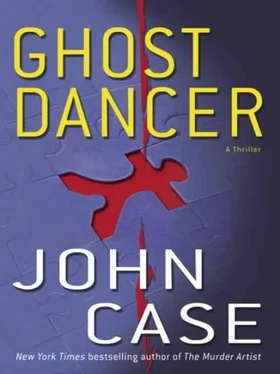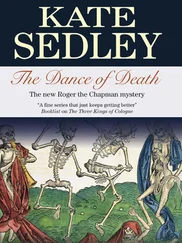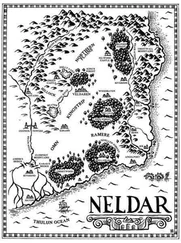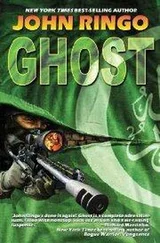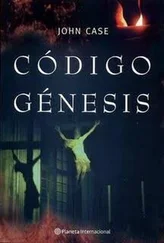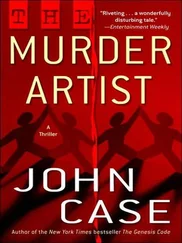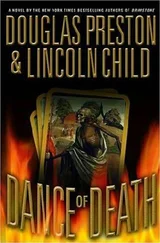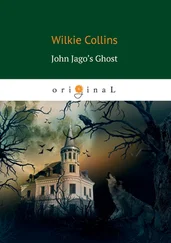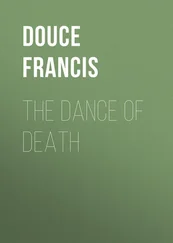“Oh my God-” Her hand flew up to her mouth. “I’m sorry. I just don’t know a thing that could help you.” Her damp eyes shone like crushed jewels. “I don’t know him anymore. I only know the person he used to be. Even in court, even by then, he was different. You could see it. Eyes closed down, hard as a stone.” She shook her head. “He’s been out for months now, and he hasn’t called.”
“But if he does…”
She pursed her lips, and nodded. “If he does, I’ll call you.” She offered a square of paper from a basket. It was the reverse side of a page from a one-a-day calendar of flower photos. He gave her his number in Dublin, and told her he’d check his messages each day.
He was saying good-bye, on his way out the door, when her voice stopped him. “You know…” she said.
When he turned, she was looking at the calendar page.
“I don’t see how this can help,” she told him, “but if Jack… does something… I can guess the date.”
“When? How?”
“June twenty-two. It’s an important date for a lot of Native Americans. Because it’s the solstice.” She pressed her lips together. “You say ‘sundance’ now and everybody thinks of Robert Redford. But the Sun Dance was the biggest ceremony of the year for many tribes. The government outlawed it way back when – and I know Jack wrote a paper about it in high school. He said it was like outlawing Christmas.”
“Why was it outlawed?” Burke asked.
She shrugged. “Because it was bloody – for some of the tribes, at least. White people were repulsed by it.”
“What did they do?”
“It was different from tribe to tribe, but it always involved a lodge pole, like a May Pole, but bigger, standing in the ground. The Plains tribes would attach a buffalo skull to the pole, and stuff it with offerings of grass. Other tribes tied a buffalo penis to the pole. But the idea was the same: The land should be fertile, and the people, too. There was always a lot of drumming and dancing and singing, and, well, this is the part that got so many whites upset. Some of the men would be tethered to the pole by straps attached to hooks in their chests or backs.”
“Jesus,” Burke exclaimed.
“Well, you can imagine,” Mandy said. “They’d fast and suffer for days, dancing in a circle around the pole, pulling against their own flesh, hallucinating and having visions. The way Jack explained it in his paper, it was a symbolic death, part of the great cycle. When they finally broke free from the pole, it was like… a resurrection.” She frowned. “Anyway, Jack’s essay won a prize and all. I’m thinking that if he was going to make a gesture, that’s when he’d do it.”
Burke frowned. Today was June 13.
Mandy saw the look on his face, and guessed what he was thinking. “I know,” she said, “it’s not even ten days.”
SAN FRANCISCO | JUNE 14, 2005
The city at night. It took your breath away.
Wilson drank it all in as he headed into town. The hills tumbling down to the water. The contours of land, made visible by the city’s lights, ending at the harbor’s inky edge. It was gorgeous, and it just got better the closer you came. A galaxy of skyscrapers glittered against a backdrop of stars, the Golden Gate ablaze with the lights of cars.
The natural setting was spectacular, but it was technology that made the city beautiful at night. Wilson smiled at the irony. The glittering world in front of him was a direct descendant of the first illuminated metropolis: the White City of the Chicago World’s Fair, which Tesla’s inventions had helped to light.
Ironically, Wilson thought, it was Tesla’s technology, improved upon by himself and manifest in the transmitter atop the lookout tower in Nevada, that would put out the lights forever. America was about to return to more natural, diurnal rhythms.
How long, he wondered, until the cars disintegrated? Decades, he guessed, even in the Bay Area’s moist air. Some of the metal might be scavenged. The rest would oxidate. But the plastic? The rubber? It would be there for centuries, an eyesore and a reminder, except in the country’s more fecund climates, where it would disappear in the midst of encroaching forests.
And the bridges? The bridges would remain until an earthquake pulled them down.
Driving into the city, he felt the lure of it: the normal life. He and Irina could be happy here. He could sell the ranch and buy a house. Get a job, or start a business. Felon or not, a good engineer was a rare commodity. He could introduce Irina to the silver-dollar pancakes at Sears, and watch her dimpled smile as she enjoyed the role reversal of being waited on. They could go to Chinatown and Golden Gate Park. Their kids would play t-ball and soccer. He’d buy her a minivan, and head north along the coast to the Russian River, where people from her part of the world settled a century ago, trapping and fishing.
Right, Wilson thought. We’ll do that. And then we’ll hold hands and sing “We Are the World.”
He pulled up in front of the Nikko, and let the valet park the Escalade. The transmitter he’d used in Culpeper was locked down under the bed’s cover. Then he checked in, went to his room, and cleaned up.
He grabbed a bottle of water from the minibar, dropped into a comfortable chair, and removed the tiny photograph of Irina from his wallet. He looked at it for a long time. There was something almost inscrutable about her expression, a mixture of sadness and hope… and something else. He couldn’t quite figure it out, but that was okay, too. She’d be flying into Vegas in a few days, and after that, he’d have a lifetime to learn her secrets.
It was raining the next morning. Brake lights bled onto the slick black pavement. The Escalade’s wheels hissed as it rolled along a network of one-way streets, arriving, just a few minutes later, at the courthouse.
The building didn’t open until nine, but he wanted to get to it early, so he could scope out the parking. He needed exact GPS coordinates for both the spot where he’d be parked and the courtroom he was targeting. Culpeper had been a more amorphous target, and therefore comparatively easy.
The awkward part was the need to expose and elevate the weapon. It didn’t look like much, it didn’t even look like a weapon, but it looked strange – there was no question about that. And while he needed clean sight lines, he also needed to park in a spot where no one was likely to notice the truck for the few minutes it would take to do what he had to do.
In the end, any number of places might have been suitable, but the decision as to which was best was a no-brainer. He smiled as he pressed the button and retrieved the ticket for the Turk Street garage. It was so early that only the first two levels were occupied – with a sprinkling of cars on the third. After that, nothing.
Wilson drove straight to the roof. Rain pounded the windshield as he emerged into the open air. It was clear at a glance that at eight a.m. on a weekday, level five was likely to be empty.
After checking the locations of surveillance cameras, he backed into slot 952.
Standing at the truck’s rear, Wilson looked out directly at the courthouse. The CCTV cameras would be able to see the bed of the truck, this was true, but one camera’s visual field would be partially impeded by a post and the other would be somewhat obscured by the truck’s cab.
He considered it. He could spray-paint the lenses. Or he could go with the probabilities. There were four cameras on each level. That made twenty cameras in all. There was probably a bank of monitors somewhere on-site. But most of the time, absent a disturbance, no one would be looking at the feed from the surveillance cameras. The footage was primarily for later use, if there was a theft or some other crime.
Читать дальше
